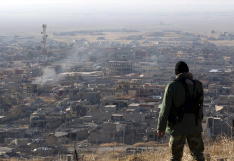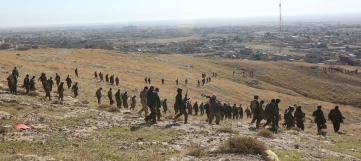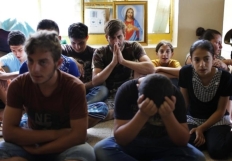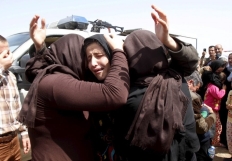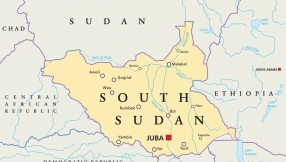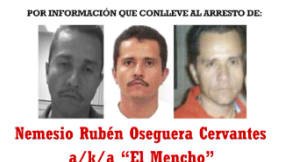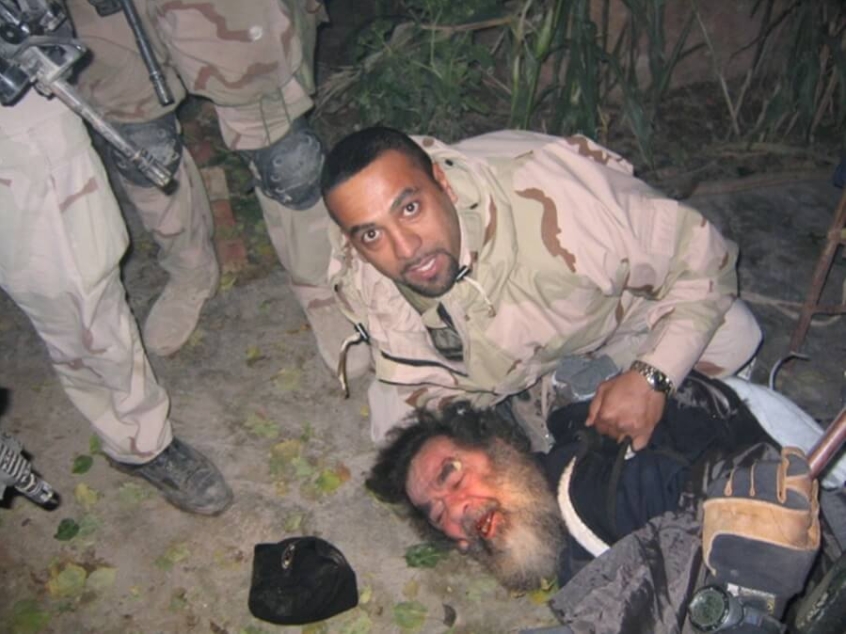
U.S. President George W. Bush and British Prime Minister Tony Blair decided to go ahead with their plan to invade Iraq purportedly to destroy its alleged weapons of mass destruction (WMD) despite experts' findings that no such weapons existed, a book published on Sunday revealed.
"God, Spies and Lies," by South African journalist John Matisonn, describes how then South African president Thabo Mbeki tried in vain to convince both Bush and Blair that militarily ousting Iraqi president Saddam Hussein in 2003 would be a terrible mistake.
Mbeki's predecessor, Nelson Mandela, also called Bush on the phone to try and convince him to scrap his invasion plan but failed to do so, disgustingly saying after the phone call, "President Bush doesn't know how to think," The Guardian reported.
Last week, Mbeki confirmed that he and Mandela both pleaded with Bush and Blair to heed the South African WMD experts who had special knowledge about Iraq's weapons programme. This was because South Africa's former apartheid regime once collaborated with Saddam in trying to develop WMDs in the 1980s.
However, South Africa abandoned its WMD programme with the fall of the apartheid regime in 1994.
But as Mbeki rose to power, he called back the WMD experts from the former regime and instructed them to investigate the U.S. and British claim that Saddam had WMD – the principal justification for the invasion.
Mbeki called Saddam and asked for the South African team of experts to be granted access to Iraq's weapons facilities.
"Saddam agreed, and gave the South African team the freedom to roam unfettered throughout Iraq," writes Matisonn, who says his information came from sources in Whitehall and the South African cabinet. "They had access to U.N. intelligence on possible WMD sites. The U.S., U.K. and U.N. were kept informed of the mission and its progress."
The experts "already knew the terrain, because they had travelled there as welcome guests of Saddam when both countries were building WMD," Matisonn says.
On their return to South Africa, they reported that there were no WMDs in Iraq.
In January 2003, Mbeki, who succeeded Mandela as president, sent a team to Washington to explain the experts' findings, but these were dismissed by U.S. authorities. Mbeki himself then met Blair for three hours at Chequers on Feb. 1 February, the book says. Mbeki specifically warned Blair that Saddam's ouster by force could lead to a national resistance to the invading coalition forces. But he failed to convince Blair to stop the invasion.
For his part, the then retired Mandela phoned the White House and asked for Bush who initially refused to talk to him, the book says. Undeterred, Mandela called former President Bush Sr., and Bush Sr. called his son the president to advise him to take Mandela's call.
Bush received Mandela's call, but after the call, Mandela "was so incensed he gave an uncomfortable comment to the cameras: 'President Bush doesn't know how to think,' he said with visible anger," the book says.
On March 19, the U.S. "shock and awe" airstrikes on Baghdad began, triggering a conflict that has continued for more than a decade, leaving hundreds of thousands of people dead and providing the impetus and the material for the rise of the Islamic State, the book says.










